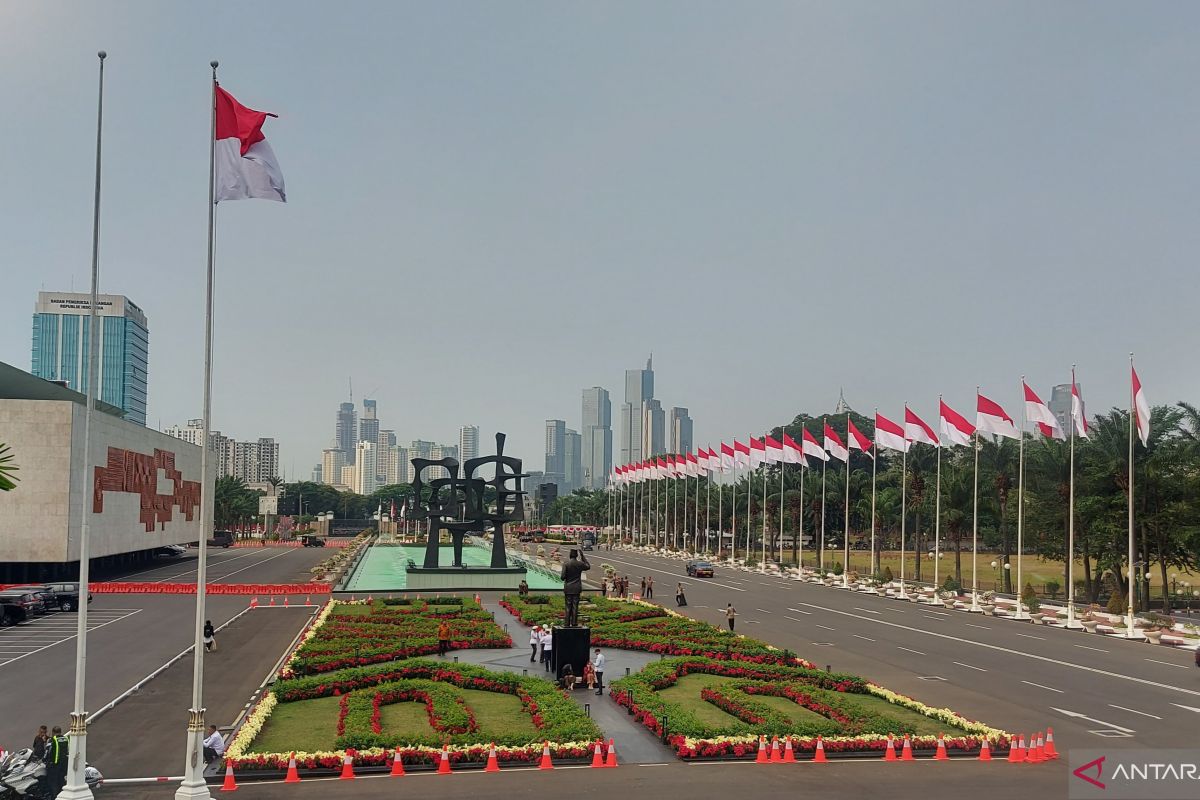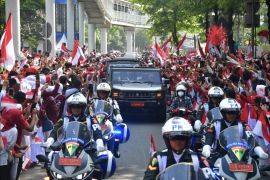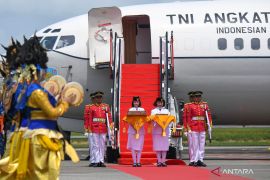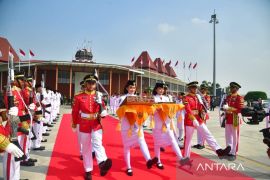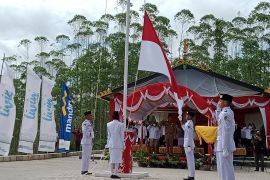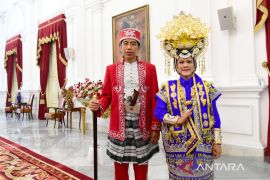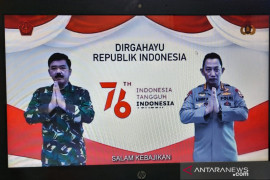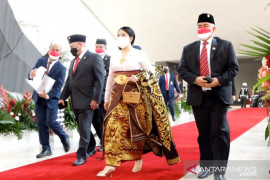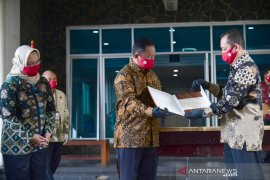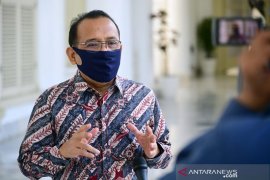This history began much before the proclamation was made on August 17, 1945.
"The important moments in Indonesia's independence were very simple, but it was very crucial," Indonesian historian Asep Kambali told ANTARA here on Tuesday (August 15).
The history of Indonesia's independence proclamation began with Japanese Prime Minister Kuniaki Koiso promising to grant freedom to the nation at the 85th Teikoku Henkai Special Session in Tokyo on September 7, 1944.
Koiso conveyed the Japanese Emperor's promise that Indonesia would be granted independence at a later date and this promise was fulfilled by the Japanese through the establishment of the Investigating Agency for the Preparatory Work for Indonesian Independence (BPUPKI) on April 29, 1945.
The agency was formed with the aim of establishing the foundation and form of the state. And, in turn, a number of tools needed for the establishment of the nation were also prepared at meetings held by the BPUPKI, including the formulation of the Pancasila state ideology on June 1, 1945.
The Japanese surrendered to the Allies on August 14, 1945, after the bombings of Hiroshima and Nagasaki in Japan on August 6 and 9.
Prior to their defeat, the Japanese summoned Soekarno and Mohammad Hatta to Dalat, Vietnam, on August 12 to inform them that Japan wanted Indonesia to determine its own destiny, and that the proclamation of independence could be carried out within a few days.
"It means that Indonesia should be handed over (to the Netherlands) because, according to the law of war, an area of power that had previously belonged to the enemy, when the enemy was defeated, that area was like an inventory. So humans and their territory will be handed over," said Asep.
Japan, at that time, should have surrendered the territory of Indonesia and the people in it to the Dutch.
Related news: Will discuss Dutch recognition of Aug 17 with FM: Widodo
However, amid a vacuum of power, the Indonesian people, young and old, decided to formulate the proclamation of independence.
Therefore, even though it received the blessing of Japan, Indonesia's independence was actually obtained thanks to the efforts of the Indonesian people.
"Many things in the momentum, how this proclamation was then formulated, echoed, and declared to the public, was inseparable from the encouragement of the (Indonesian) younger generation," said the historian.
Simple proclamation
While the proclamation of independence was being drafted, Soekarno decided that it needed to be carried out carefully, formally, and at the will of all Indonesian people, not solely at the will of some parties.
Then, the Rengasdengklok incident occurred, when Soekarno and Hatta were kidnapped by a group of youths and asked to declare independence immediately.
In the midst of a state of emergency, the text of the proclamation was drafted at Rear Admiral Maeda Tadashi's residence and Indonesia was declared independent on August 17, 1945.
The proclamation of independence was a simple affair and was attended by several figures, including Soekarno, Mohammad Hatta, Suwiryo, Muwardi, Latief Hendraningrat, Suhud, and SK Trimurti.
"So, the history of the proclamation of independence is a history of simplicity. And our proclamation was obtained because of something formal. This independence is something that was prepared together, at the will of representatives from all over the archipelago," said Asep.
Related news: Hope to celebrate Independence Day in new capital in 2024: President
Independence is a process
Historian Asep emphasized that the quest for independence did not end with the freedom struggle. Instead, it is a process that needs to continue.
"So, if someone says that the struggle for independence has stopped because it was proclaimed by Bung Karno and Hatta, that would be wrong," he explained.
Efforts are needed to continue to instill the values of heroism, nationalism, and love for the nation through historical and cultural education in order to continue to foster the spirit of independence, he said.
Independence is a process that needs to be cared for, maintained, and fulfilled by all Indonesian people by learning about and contributing to the nation's achievements.
Each individual will need to fulfill their respective role and become a part of the solution and help solve the nation's problems. This would allow justice and prosperity to be achieved in Indonesia.
The commemoration of Indonesia's independence needs to be used as a momentum for introspection and remembrance of the nation's struggle.
One of the things that could be done to foster a love for the nation's heroes is arranging trips to museums that document the independence struggle.
The momentum of 78 years of Indonesian independence needs to be used by the government to revitalize the nation's history and culture, as well as encourage the Indonesian people to take a closer look at the nation's history.
In the meantime, every individual in the Unitary State of the Republic of Indonesia (NKRI) is expected to take care of and uphold independence by continuing to work, innovate, and make their best contribution to the progress of the nation.
This is in accordance with the hopes of the nation's founders, as stipulated in the Constitution, and the vision and mission to create an Indonesia that is sovereign, just, and prosperous.
"So, being independent, united, sovereign, just, and prosperous is a lifelong endeavor," said Asep.
To maintain this independence, the Indonesian people must unite. And with this unity, they can protect sovereignty. They must also work together and collaborate to create justice and prosperity for all Indonesian people.
Related news: Flag-raising troop provided Pancasila character education: minister
Editor: Tia Mutiasari
Copyright © ANTARA 2023
